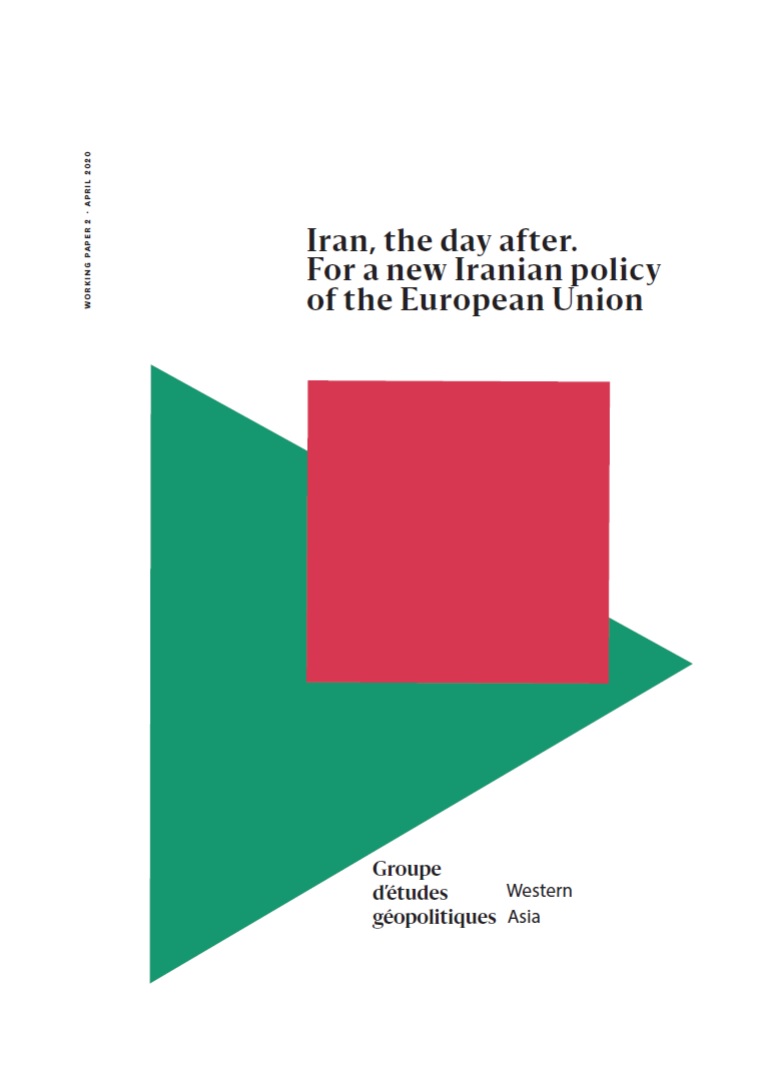Iran, the day after. For a new Iranian policy of the European Union
Télécharger le pdf
14/04/2020

14/04/2020

 Voir tous les articles
Voir tous les articles
Iran, the day after. For a new Iranian policy of the European Union
The analysis of the world that will come after the coronavirus involves bringing together heterogeneous knowledge and perspectives. After a first note published on the transformations of the energy sector, the Groupe d’études géopolitiques today publishes a second note, proposing a fundamental reflection on the Iranian policy of the Europeans, signed by Pierre Ramond and Leopold Werner with a foreword by Michel Duclos.
Iran, the day after. For a new Iranian policy of the European Union.
The present note proposes a review of the Iranian policy of the Europeans and an aggiornamento of its ambitions based on three hypotheses :
- the American policy of maximum pressure has proven its ineffectiveness, even its dangerousness ;
- particularly isolated and weakened, the Iranian regime will be pragmatic enough to accept new negotiations as soon as they can lead to an improvement in its political and economic situation ;
- Iran’s destabilising activities are a legitimate security concern for Europeans ; they call for new and more ambitious negotiations to obtain a reduction in such activities.
Therefore, we suggest reconnecting the different dimensions of Europe’s Iranian policy, which for the time being deals too autonomously with the issues of nuclear proliferation, the ballistic missile programme and Iran’s regional influence. We outline how Europeans could defend a new regional security architecture in which Iran would have an interest in normalising the different dimensions of its power, in exchange for the international recognition it lacks today.
- On the military level, Iran’s access to Western European weapons technologies would be conditional on Tehran abandoning its military nuclear and ballistic proliferation programmes, without any expiry clauses. We propose the establishment of a United Nations monitoring body to verify Iran’s compliance with the abandonment of its ballistic missile programme.
- On the diplomatic level, Europeans could provide Iran with guarantees of its return to the international financial system, in exchange for ratification of the Palermo Convention, the FATF recommendations and the opening of an open dialogue with Tel Aviv.
- Finally, on the geopolitical level, Europe could defend the controlled institutionalisation of Iranian influence in Iraq in order to complete the security services reform in that country. We also propose, like others before us, the establishment of a crisis prevention and management mechanism’ to promote dialogue and de-escalation in the event of new regional tensions, particularly in the Straits of Hormuz and Iraq.
Faced with a volatile agenda, only a solid strategic course, based on an objective analysis of Europe’s interests in its relations with Iran and on different diplomatic formats, will enable European diplomacy to pull through for the « day after » : after the coronavirus, after the American and Iranian presidential elections, after the end of the JCPOA, after the intensification of internal protests within the regime, after the death of the Guide.
To support this initiative you can make a tax-exempt donation, or subscribe to Le Grand Continent, the journal published by Groupe d’études géopolitiques.
citer l'article
Pierre Ramond, Leopold Werner, Iran, the day after. For a new Iranian policy of the European Union, Apr 2020,




